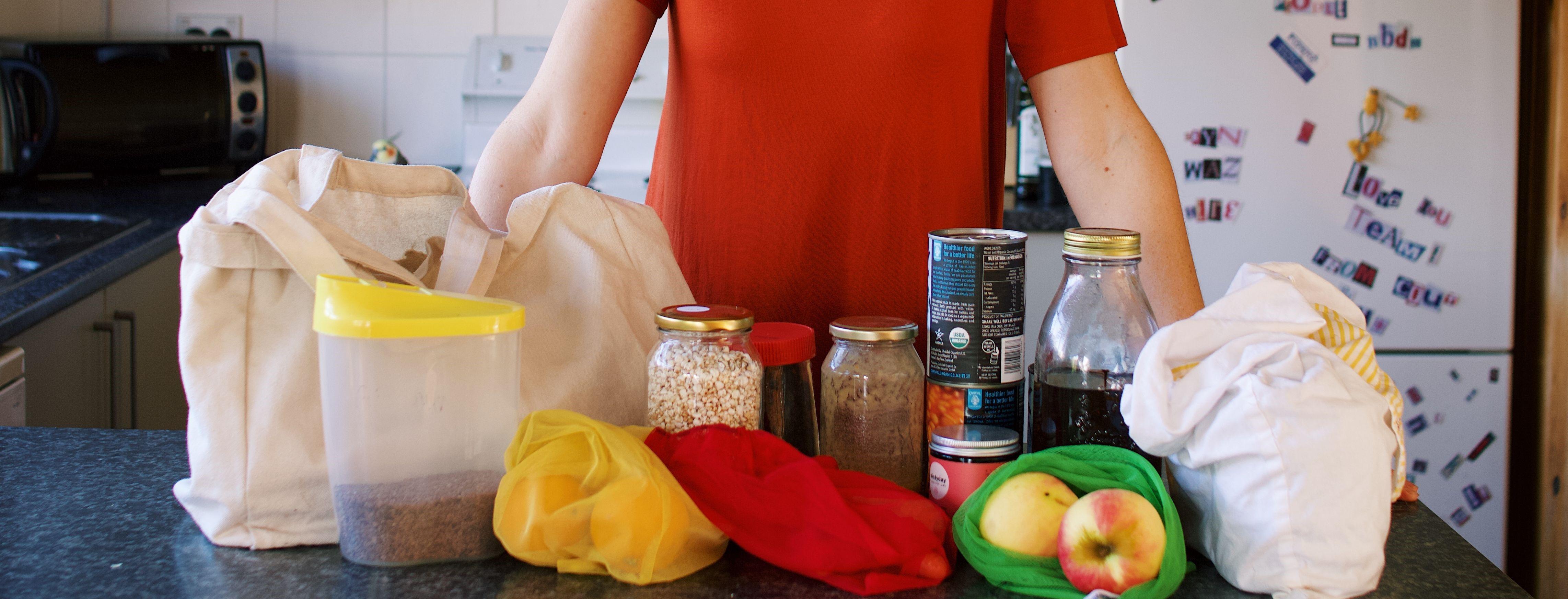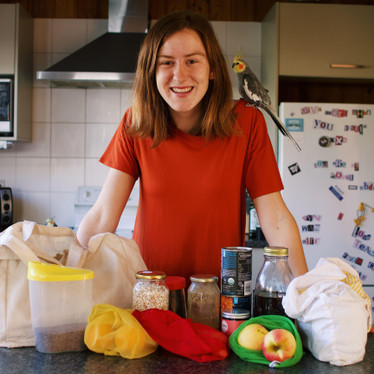
The zero waste movement has taken off, and sparked the rise of the ‘packageless pantry’. Social media is currently littered with pictures of pantry shelves holding up rows of matching glass jars and bulging cotton bags, representing a more sustainable way of consuming food and reducing waste. These days it’s normal to scoop your food out of large bins at bulk bin stores and into your own containers, and skip the grocery store altogether.
There’s no doubt that shopping at bulk food stores is a great way to reduce your pantry waste and minimise the amount of plastic you’re throwing into the rubbish bin at meal times. But not all of us have the luxury. When you’re pressed for time, have kids balancing on your hips, or live hours away from a package free store, it’s still totally possible to reduce your pantry waste without shopping at a bulk bin store.
Buy only what you need
In New Zealand, 122,500 tonnes of food is sent to landfills every year. Food waste makes up a large percentage of a household’s rubbish bin, but this can be avoided with meal plans, shopping lists, and forethought. Before travelling to the supermarket, make a list of the items you need, and stick to it. This list may be helpful to create as you design a formal meal plan, or simply pick a few recipes that you’d like to make that week. When you’re at the supermarket, think carefully about each item before you place it in your trolley. Avoid buying something just because it’s on sale. Buying only what you need will not only save you money, but ensure you keep your rubbish bin low, and the planet happy.
Shop the outer perimeter of the supermarket
Perhaps you’ve already noticed this waste free hack: Foods placed around the outskirts of a supermarket, have less packaging. Picture the vegetable section, deli, butchery, and bakery. Even though these supermarket sections are not completely package free, the waste is always less. Bring your own bread bag to the bakery, or your own containers to the deli and butcher as supermarkets across New Zealand now allow customers to BYO.
Choose glass and tin
If you can’t avoid any packaging, opt for food packaged in more sustainable materials. For example, choose the mayonnaise in the glass jar, rather than the plastic tub. Grab the pasta in the cardboard box instead of the plastic packaging, and purchase tins and cans wherever possible. Glass and tin are more readily recyclable than plastic, and you can even repurpose glass jars as containers for your leftovers, pencil holders, or even arts and crafts.
Author: Kate Hall
Kate Hall, our eco-living contributor, is an expert on sustainability. Through her own daily actions, she demonstrates how to easily live more lightly on our beautiful planet.

